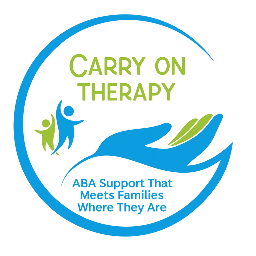Understanding the Complexity of Sibling Bonds
In families affected by autism, the sibling relationship holds unique challenges and opportunities. While the dynamics can be fraught with emotional and developmental hurdles, they also present a fertile ground for growth, empathy, and mutual learning. This article delves into how these sibling interactions impact both typically developing children and those with autism, offering insights into the intricate web of emotions, responsibilities, and personal development that define these relationships.
Challenges Faced by Siblings of Children with Autism

What challenges do siblings of children with autism face?
Siblings of children with autism navigate a complex emotional landscape. Many report experiencing decreased psychological well-being, characterized by increased anxiety, stress, and feelings of confusion. This emotional toll ties closely to unique family dynamics where attention often skews towards the child with autism, leaving typically developing siblings feeling neglected or overshadowed. In fact, studies show that these siblings frequently experience higher levels of anxiety and stress compared to peers without autistic siblings.
Feelings of resentment
It's common for siblings to harbor feelings of resentment. This can stem from the perceived inequities in parental attention and the responsibilities they must shoulder, such as caregiving roles that may develop over time. Reportedly, siblings might feel compelled to suppress their own needs to accommodate their autistic sibling, leading to frustration. Jealousy arises, especially when they witness their peers engaging in activities that they find challenging due to their sibling's behavior, causing another layer to emotional strife.
Isolation and stress
Moreover, feelings of isolation are prevalent among these siblings. Many feel misunderstood by peers who may lack understanding or empathy toward their situation. For instance, when they encounter ableist remarks or negative comments about their autistic sibling, they may wrestle with embarrassment and insecurity.
Support from initiatives tailored specifically for siblings can be crucial. Resources like the Autism Sibling Support initiative provide opportunities to share experiences, validate feelings, and build coping strategies to help siblings manage their emotional health more effectively. Encouraging open communication within the family about autism also allows siblings to articulate their feelings, fostering a healthier dynamic that can alleviate feelings of isolation and resentment.
Benefits of Sibling Relationships in Families with Autism

How can sibling relationships benefit children in families with autism?
Sibling relationships in families with autism can provide substantial benefits by fostering empathy, emotional resilience, and social competencies among both autistic and neurotypical siblings. These interactions act as a training ground for developing positive social behaviors and can enhance self-concept, especially for typically developing siblings who may experience feelings of frustration or isolation.
Positive exchanges, such as teaching and caregiving, improve emotional connections and help bridge communication gaps for the sibling with autism, promoting their social skills. Strategies like shared activities and simple games allow siblings to bond, making interactions enjoyable.
Empathy and social skills
Typically developing siblings often develop greater empathy and maturity by navigating the challenges of having a sibling with autism. This journey can help them become more compassionate, learning to understand and support their siblings' unique needs. Research indicates that these children may also develop superior social skills as they practice interpersonal interactions within a safe family environment.
Emotional connections
Emotional connections between siblings can be profound, with typically developing children often feeling protective and invested in their autistic sibling's success. Though conflicts may arise due to the pressures of caregiving, the underlying bond can foster resilience and a greater sense of responsibility.
Social competencies
Through sibling interactions, typical siblings learn valuable skills in communication, conflict resolution, and emotional understanding. They begin to navigate complex social dynamics, which not only benefits their relationship with their sibling but also enhances their friendships and overall social adjustments outside of the family.
Ultimately, with proper guidance and unconditional support from parents, sibling relationships in families affected by autism pave the way for personal growth and healthier family dynamics.
Emotional and Developmental Interactions Among Siblings
How does autism impact emotional and developmental interactions between siblings?
Autism significantly influences emotional and developmental interactions between siblings, creating a multifaceted landscape filled with both challenges and opportunities for growth. Typically developing siblings may find themselves grappling with a range of emotions, including confusion, frustration, and guilt, often stemming from the dynamics within their family. Increased responsibilities or perceived inequalities in parental attention can further compound these feelings, leading to emotional distress.
Despite the challenges, there are notable positive outcomes as well. Research indicates that typically developing siblings often cultivate enhanced social skills, empathy, and resilience through their relationship with their autistic sibling. These qualities can emerge from navigating complexities such as communication deficits and aggressive behaviors while simultaneously providing care and support.
Creating supportive environments greatly benefits sibling relationships. Open dialogue about autism helps siblings to process their feelings and better understand each other, reducing misconceptions and fostering stronger bonds. Involving siblings in family discussions and normalizing their experiences can mitigate feelings of resentment or isolation. Engaging in shared activities promotes connection, allowing both siblings to engage meaningfully despite the communication challenges posed by autism.
Thus, while there are inherent risks for emotional and developmental difficulties, positive sibling outcomes are achievable with understanding, support, and meaningful interactions within the family. By promoting empathy and nurturing communication skills, siblings can navigate their unique family dynamics more effectively.
Coping Strategies for Non-Autistic Siblings

What coping strategies are available for non-autistic siblings?
Non-autistic siblings of autistic children encounter unique challenges that can be emotionally taxing. Fortunately, a variety of coping strategies can help enhance their resilience and improve sibling dynamics.
Support Groups
Joining support groups can provide a vital lifeline for non-autistic siblings. These groups enable kids to share their experiences with peers who understand their situation. Engaging in conversations with others facing similar challenges normalizes their emotions, helping them feel less isolated. Support networks can also provide insight into managing their unique family dynamics effectively.
Behavioral Training
Behavioral training can also play a significant role in equipping siblings to navigate their experiences. Resources like age-appropriate workbooks can be highly beneficial. These tools help siblings understand autism more profoundly, validate their feelings, and teach practical coping strategies. Furthermore, they promote skills that enhance emotional intelligence, enabling better communication and empathy.
Parental Communication
Open lines of communication with parents are crucial. Typically developing siblings need an emotional outlet to express their thoughts and feelings. This dialogue helps parents recognize their children’s experiences and foster an environment of understanding and support. Additionally, encouraging siblings to pursue individual interests outside the sibling role can help them maintain their identity and balance.
Shared Activities
Fostering shared activities can be a powerful way to strengthen the sibling bond. When parents consider the preferences of all children in family outings or activities, it encourages a sense of belonging and equity. Engaging in simple games or collaborative tasks not only promotes familiarity but also creates lasting positive memories, reinforcing their relationship despite the communication challenges that may arise.
Overall, implementing these strategies can provide non-autistic siblings with the tools they need to cope effectively while building a constructive and empathetic relationship with their autistic siblings.
The Role of Family Dynamics in Shaping Sibling Interactions
What role does family dynamics play in sibling interactions when autism is involved?
Family dynamics play a crucial role in shaping sibling interactions when autism is involved. Positive family environments characterized by warmth and open communication can foster supportive relationships between siblings, helping them navigate the unique challenges presented by autism. In contrast, high levels of parental stress and criticism can strain these relationships, leading to feelings of jealousy, isolation, and resentment among siblings.
As siblings mature, they often experience both emotional challenges and growth opportunities. Their interactions may reflect the parents' approach to addressing their child's autism. For instance, siblings who receive developmentally appropriate information about autism are usually better equipped to handle unique behavioral challenges. This understanding can reduce their embarrassment and frustration, potentially leading to increased patience and acceptance.
How can interventions improve sibling relationships?
Interventions aimed at improving sibling relationships include promoting shared activities and providing psychoeducation about autism to both siblings. Engaging in fun games and discussions helps affection flourish, deriving compassion from the often complex dynamics of siblinghood.
These interventions not only enhance emotional security but also teach siblings valuable life skills. By participating in constructive dialogue and joint experiences, siblings learn empathy, resilience, and responsibility. This is crucial for siblings experiencing mixed emotions, as workshops or support groups can normalize feelings of confusion or frustration while providing coping strategies.
In sum, family dynamics significantly influence the quality of sibling interactions in families affected by autism. A nurturing environment promotes positive outcomes, while strategic interventions facilitate healthy emotional and social growth for both neurotypical siblings and those with autism.
Personal Growth and Resilience in Siblings of Autistic Children
Empathy and Maturity
Siblings of children with autism often develop a profound sense of empathy and maturity, shaped by their unique experiences. Navigating the complexities of their sibling’s condition encourages them to cultivate interpersonal skills that may not be as deeply developed in their peers. This growing compassion manifests in several ways:
- Protective behaviors towards their sibling.
- Responsive communication that accommodates the autistic sibling's needs.
- Increased awareness of social cues, which enhances their interactions with others.
Resilience Development
The challenges faced by siblings also foster resilience. As they confront emotions such as jealousy, confusion, and embarrassment, they learn valuable coping strategies. Many siblings rise to the occasion by:
- Seeking support from peers or sibling groups.
- Engaging in constructive dialogues about their feelings with parents.
- Helping their siblings navigate social interactions, thus viewing obstacles as opportunities for growth.
These experiences contribute to their emotional fortitude, equipping them to handle future life challenges more effectively.
Coping with Responsibilities
Siblings frequently assume caregiving roles, which can significantly impact their emotional health. Balancing this added responsibility with their personal needs is crucial. To effectively cope, siblings can benefit from:
- Regular one-on-one time with parents to discuss their own feelings and needs.
- Setting boundaries around their own time and space to ensure they have breathing room.
- Structured family activities that foster connection and understanding across sibling dynamics.
In conclusion, while the journey may be filled with challenges, siblings of autistic children often emerge as more empathetic and resilient individuals.
Communication Needs and Challenges for Siblings
Open dialogue about autism
Engaging in open discussions about autism is crucial for the relationship between siblings. Parents should provide developmentally appropriate information to non-autistic children about their sibling's condition. This conversation should evolve over time, allowing siblings to better understand their sibling's behaviors and needs. Early discussions can prepare siblings to explain any unusual behavior to their friends, reducing feelings of embarrassment and fostering a sense of comfort in social situations.
Addressing feelings
Siblings of autistic children often navigate a whirlwind of emotions such as jealousy, fear, and confusion. It’s essential for parents to encourage siblings to express their feelings openly, ensuring they feel heard and validated. Such dialogue can mitigate feelings of frustration and resentment, allowing for healthier interactions within the family. Siblings should be reassured that their emotions are normal, establishing a safe space for sharing and understanding.
Reducing misconceptions
To minimize misconceptions about autism, siblings need continuous updates and factual information about their sibling's condition. Providing clarity around autism can help dispel myths and encourage empathy. Support groups can also serve as a platform to share their experiences, fostering a sense of belonging and reducing the feelings of isolation that siblings might experience. Parents, by keeping communication channels open, can significantly enhance the emotional health of all children in the family.
The Impact of Social Support Networks
Peer Relationships
Siblings of children with autism (ASD) often face unique challenges that can affect their emotional and psychological well-being. Their quality of life (QoL) significantly improves with strong peer relationships that offer a sense of belonging and understanding. These friendships can help mitigate feelings of isolation and provide opportunities for expressing their emotions, reducing anxiety and stress associated with their sibling's condition.
Support Groups
Support groups specifically tailored for siblings can be invaluable. They create a safe space for siblings to share experiences, feelings, and coping strategies with others who understand their journeys. Research indicates that engaging in these networks can foster resilience and empathy as siblings realize they are not alone in facing similar challenges. Additionally, support groups can provide access to age-appropriate counseling and information about autism, enabling siblings to feel more empowered and connected.
Reducing Isolation
Addressing the emotional impact on these siblings is crucial. Many report feelings of loneliness, which can stem from both their experiences and the perceived neglect of their unique needs within the family dynamic. By participating in support groups or developing a network with peers, siblings gain access to valuable resources and emotional support. This, in turn, can enhance their ability to cope and thrive, promoting healthier family dynamics that benefit both the siblings and the autistic child.
Balancing Family Roles and Responsibilities
Parental Attention
Parents naturally devote extra attention to children with autism due to their unique needs. However, this can lead typical siblings to feel neglected or overshadowed. It's crucial for parents to communicate openly with all their children about autism and to validate each sibling's feelings. Regular one-on-one time with typically developing (TD) siblings ensures they feel valued and supported, fostering individual relationships and helping them voice concerns about perceived inequalities in family dynamics.
Equality and Fairness
Setting fair family rules and responsibilities helps create a sense of equity among siblings. When siblings feel treated equally, they are more likely to cooperate and support one another. Additionally, teaching coping strategies to manage challenging feelings, such as jealousy and stress, is vital to maintaining a harmonious household. This approach promotes a collaborative atmosphere, where each sibling's needs are recognized and addressed.
Childhood Experiences
Growing up with a sibling who has autism can provide TD siblings with enriching experiences that develop their emotional maturity. They may learn empathy, responsibility, and patience, but also face challenges like embarrassment and isolation. Encouraging shared activities allows TD siblings to bond with their autistic sibling, enhancing their interactions and promoting positive relationship development.
| Topics Covered | Details | Implications |
|---|---|---|
| Parental Attention | Open communication and one-on-one time with TDs | Reduces feelings of neglect and promotes bonding |
| Equality and Fairness | Setting family roles and responsibilities | Helps in fostering cooperation and reducing jealousy |
| Childhood Experiences | Learning empathy and patience through interactions | Encourages personal growth and emotional development |
Long-Term Considerations for Siblings of Autistic Individuals
Future caregiving
Siblings of autistic individuals often face concerns regarding future caregiving responsibilities. As parents age or when they are no longer able to provide care, the burden may shift to siblings. This transition can be distressing, as many siblings worry about the day-to-day care needs of their autistic brother or sister. Effective planning and discussions about these potential roles can help alleviate some anxiety and foster a shared understanding of responsibilities among family members.
Sibling roles in adulthood
In adulthood, the dynamics between siblings can vary greatly. Siblings may transition into caregiver roles, typically taking on more responsibility, especially women. As relationships evolve, older siblings might feel a heightened sense of duty and connection, fostering a deeper emotional bond. Conversely, younger siblings might grapple with feelings of abandonment or neglect if they perceive their autistic sibling is favored more by parents.
Emotional challenges
The emotional landscape for siblings of autistic individuals is complex, often encompassing feelings of love, frustration, resentment, and guilt. Many siblings report a desire to connect yet encounter challenges stemming from their sibling's behaviors, including aggression or communication difficulties. Furthermore, the burden of emotional labor associated with caregiving can lead to increased anxiety and stress. Encouraging open communication within the family about feelings and expectations can facilitate better emotional health in the long run.
Intervention Strategies to Support Positive Sibling Relationships

Behavioral Interventions
Creating a supportive environment is crucial for siblings of children with autism. Behavioral interventions can help siblings understand their autistic sibling's behaviors better, fostering empathy and patience. Engaging in structured play and social skills training can be beneficial. Activities that promote teamwork, like board games or group projects, can strengthen these bonds while teaching valuable life skills.
Educational Resources
Parents should ensure that siblings have access to age-appropriate information about autism. Resources like books and workshops can assist siblings in comprehending their sibling’s needs and challenges. Tailored educational programs can also help typical siblings learn coping strategies and gain a better understanding of autism, which might mitigate feelings of jealousy and embarrassment.
Parent Training Programs
Training programs can equip parents with tools to facilitate healthy sibling dynamics. Such programs emphasize the importance of dedicating one-on-one time to each child, thus addressing any feelings of neglect. Additionally, parent workshops can teach communication strategies that support siblings in discussing their feelings openly, further minimizing stress and confusion.
Support systems, such as sibling groups or family counseling, can reduce isolation by encouraging connections among siblings dealing with similar circumstances. Ultimately, implementing these interventions promotes a nurturing family environment, fostering both individual and relational growth throughout this unique journey.
Fostering Positive and Sustainable Sibling Relationships
Sibling relationships in families with autism carry the potential for profound personal development and emotional enrichment, despite the inherent challenges. By fostering empathy, facilitating open communication, and providing adequate support, both parents and external programs can nurture these unique bonds. These relationships not only contribute to the development of children with autism but equally impact non-autistic siblings, promoting resilience and empathy as they prepare to face life's unique hurdles. Understanding and supporting sibling dynamics is crucial in enhancing family cohesion and well-being for all members involved.
References
- Promoting Positive Sibling Relationships | Marcus Autism Center
- The Impact of Autism on Siblings - PAAutism.org
- How to Manage the Impact of Child With Autism on Siblings
- Siblings of autistic children and teenagers - Raising Children Network
- The Quality of Life among Siblings of Autistic Individuals: A Scoping ...
- Do Siblings of Autistic Children Suffer Increased Stress?
- Siblings Perspectives: Some Guidelines for Parents: Articles
- How autism shapes sibling relationships - The Transmitter
You have to Start to be Great!






